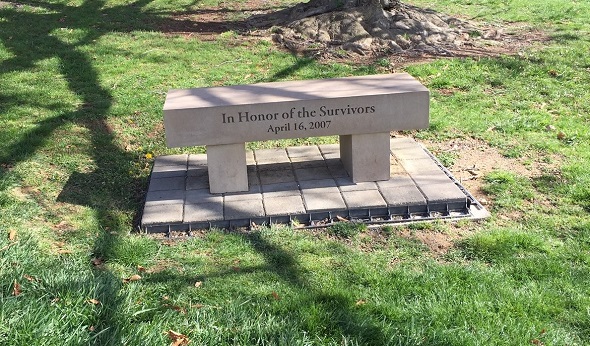From what I’ve learned about community trauma, I know that grief and aftershock may emerge involuntarily. I know that people with substance use disorders can experience bereavement differently from others. Since strong emotions make me ripe for relapse, I am planning for April 16 very carefully.
Things I am not doing: fussing at myself for not being able to get over it; avoiding and minimizing my reality by saying, “I don’t do anniversaries”; stuffing my inner wail into a stages-of-grief spreadsheet that poor Elisabeth never intended to be hafta-dos; giving in to my tendency to withdraw and quake alone; bending to the complex terror welded to my bereavement that blocks me from asking for help; going to Kroger for any purchase whatsoever because I will only see (usually only see) the wine aisle.
What I am doing: I invited friends for breakfast and they are coming, even though it’s Easter Sunday. I asked my 83 year-old dad to go with me to our local, afternoon SMART Recovery meeting and he is going, even though he doesn’t have addiction issues. I am exercising today and Saturday. I am eating simple foods moderately – no chips, no cakes, no cookies. I will take naps.
I have started to feel the first licking flames of what, for me, is horror rather than grief. I am turning towards it, not away. I acknowledge it. “Ah, horror. There you are.”
If Sunday is an ordeal – or the days before or after – I am preparing myself to endure it the best I can. If it’s not, that’s fine. If I don’t attend the candlelight vigil at 7:30 PM, I will light a candle in my mind. In the past, I have feared immolation. I have no idea what the fires of feeling and memory will do to me this time or how long the burns will take to heal. But I make it through these things. Over and over again.
Photo: John H. Rains, IV



Beautifully stated and helpful to legitimize my feelings, and to help me understand there are positive steps I can take to support myself. I appreciate you and what you do